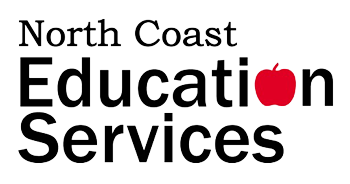Today we continue our series on Effective Studying Techniques. Studies have proven that cramming is not an effective way to study. Students may be taught what to study, but are rarely taught how to study. It is my personal belief that if we educate our students in the proper way to prepare for class, they will spend less time cramming at the last minute.
Remember that the best practice for effective studying for any subject is to do it consistently. Studying three times a week for one hour will help you more than studying once a week for three hours.
Today, our focus will be on foreign languages. Amusez-vous bien!
I started learning French when I was in first grade. It was a requirement at my school and I took it every year until I graduated. French was even offered at my summer camp, so I additional support. However, there was a lot of turnover, so in those few years I had four separate teachers.
By the time I reached high school, I had the choice of taking French or Spanish. Spanish was not offered at my old school, so I had no experience with it other than counting to ten and a few basic phrases. I chose to continue French and passed into French II as a freshmen.
Looking back, I wish I had chosen to study Spanish. While I loved my high school French teacher, I think it would have been more beneficial to me to have learned a second language. When I was working in Florida, I met many guests who spoke Spanish and Portuguese. It was difficult to communicate with them, but I learned enough basic phrases to get by.
There are so many wonderful reasons to learn a foreign language — for business, for travel, and personal growth. Click the post-it note picture to read an article from Care2.com — “6 Reasons to Learn a Foreign Language”.
No matter your age, it is never too late to learn a second language and these techniques can help!
1. Buy a dictionary (and make flashcards).
If you are studying a foreign language and do not have a dictionary, you are at a severe disadvantage. Go to a book store tonight and buy a pocket dictionary. While your phone may have a translator, it’s never a bad idea to have the real thing. Among other reasons, a book won’t run out of battery or lose its signal.
If you find yourself referencing the same word repeatedly, write it on an index card and tape it to the front of your dictionary. This can be your quick go-to list. You may even consider making a set of basic flash cards so you can review those words.
2. Practice speaking out loud.
The most effective way to study a foreign language is through practical application. If you were to suddenly find yourself stranded in the middle of Tokyo, you would learn Japanese very quickly.
Find a partner and practice speaking together. You could ask a classmate, a close friend, or a neighbor. See if your teacher would be willing to practice with you during a free period. Your teacher may even be able to pair you up with an advanced student. (If you can’t find a physical person, search online for a study buddy or hire a private tutor.)
When you sit down to talk, make sure you both have a pocket dictionary. Then, just carry on a conversation. It doesn’t have to be about any particular topic. You can have a day-to-day conversation about movies and music. You may want to pretend that you’re eating in a restaurant, traveling on the subway, or trying to navigate a local museum.
Yes, you will stumble in the beginning. Yes, it will be frustrating. And yes, you may want to quit. But remember that it takes time and dedication to learn any new skill. The first time you rode a bicycle, you probably fell more than once. That left you two choices — stop and quit, or practice and get better. So don’t worry! You will sound silly when you get started, but it’s all part of the learning process!
3. Try repeat tapes for very basic skills.
Whenever I think of foreign language tapes, I always think of Carrabba’s. The chain restaurant plays English-Italian audio in its restrooms. (It’s interesting to learn how to order a salad while washing your hands!)
While I do not recommend those tapes and CDs exclusively, they do help with basic scenarios. You’ll learn how to say hello, how to order food, and how to ask for directions. It is a great supplement, but remember — nothing beats practicing with a real person.
Before you spend hundreds of dollars on a CD set, check your local library or ask your teacher.




